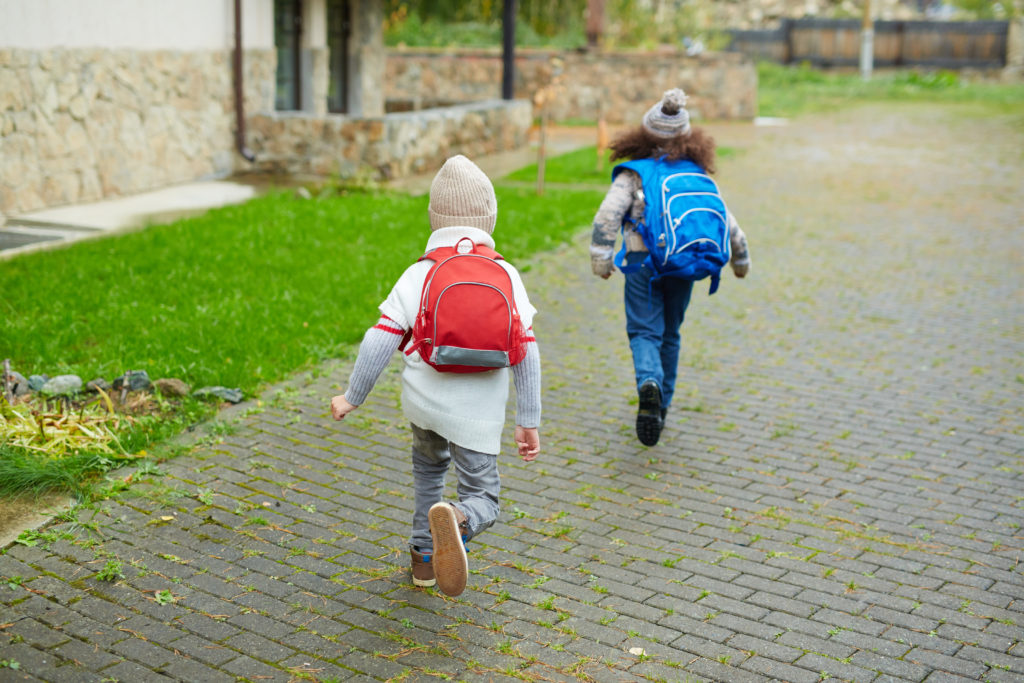Over the past two years children’s education has suffered a series of stops and starts, the likes of which we’ve never encountered before. With continuity punctuated by the effects of a global pandemic, the education system here in the UK has had to improvise, and quickly learn how to work with unprecedented scenarios.
As with everyone, children have struggled emotionally to both understand and cope with the times we’ve recently lived through, as well as attempted to work, socialise and of course, attend school as was the norm. The lack of consistent face-to-face interactions with others, will have affected some children’s confidence and development. Some might have felt safer and used this feeling as a platform on which to be more productive as a result of staying safe and away from school. For others however, the time will be remembered as challenging and possibly, traumatic.
Of course, it’s difficult to determine the full impact and lasting legacy that the situation will have had – and continues to have – on children’s mental health and emotional wellbeing, until such time as we fully emerge from the pandemic. However, one thing is for sure, and that is that remote learning, in addition to social distancing and recurrent isolation will have left many children psychologically vulnerable and in need of support.
Loss and Bereavement Are Key Influences
It’s likely that some children will have experienced a range of emotions during a relatively short period of time in their young lives of living through Covid-19 and its societal ramifications. A percentage will have lost relatives or friends to Covid-19, or at the very least been aware of someone close being seriously unwell or hospitalised.
Other losses might have included parents who have been furloughed or lost their livelihoods, whilst elsewhere a home or school transition could have happened as a consequence of the virus and our reactions to it.
Meanwhile for a significant number of children, the mental effects of having to remain distant from pivotal figures during their formative years – shielding grandparents, primarily – will have taken a psychological toll on them.
Challenging circumstances for adults as well as children could have led to heightened environments within the home, domestic violence or neglect, family conflicts of both a physical and psychological nature, financial concerns, concern about relatives who might be key workers, insecurities around housing issues, and caring responsibilities for family members.
The Legacy and How We Deal With It
The scale of the problem won’t be identified for some time, yet already we’re reading statistics which point towards a range of issues. Domestic violence charity, Refuge, reported a staggering 700% increase in calls to their helpline during the pandemic, suggesting that pastoral care resources will be in even greater demand going forward.
For some children, responding to and ultimately dealing with grief, loss and emotional difficulties in its various forms will emerge. Sadness, becoming withdrawn, irritability, frustration and anger will all be emotions triggered by national lockdowns and the consequences of them, in their immediate lives.
Then there’s those children who were already on the radar of mental health teams and organisations which provide care and support to young people struggling with core aspects of their life, pre-pandemic. Access to services they might have facilitated previously would have been severely restricted as a knock-on effect of lockdowns; disrupted at best, cancelled at worst. The loss of a lifeline to some children during these challenging times will have plunged many into deeper personal crises. Indeed a survey by Young Minds found that 80% of young people with existing mental health problems believed their condition had deteriorated during the first weeks of the pandemic.
Continued Uncertainty and Transitional Flashpoints
As Independent Social Workers with a wealth of experience in providing support and on-going solutions for children who are experiencing difficulties, Advanced CCA are well versed in acknowledging challenging scenarios. Our individual assessments, creating expert reports and ultimately devising the best care provisions for children and families. Our panel aims to shape the best outcomes for children.
The pandemic has heightened feelings of uncertainty within vulnerable children’s journeys. The sudden and inconsistent revisions we have all noted during the pandemic will harshly effect those who are most vulnerable in our society.
The period when school children transition from primary to secondary schools, moving into exam years or to sixth form/college, as well as preparing to leave school and enter the world of employment, are monumental at the best of times. In the middle of a pandemic, even more challenging on a number of psychological levels. Children worrying about their future prospects is nothing new yet set against this backdrop the problem is even greater.
We’re here to help
One of the most important things is not to feel alone when young people are experiencing psychological problems which test their emotional wellbeing. With Advanced CCA they are never alone. Renowned for our friendly and professional approach, our panel of Independent Social Workers work with children and their families every step of the way to help ease the burden and remove the obstacles which stand in the way of progress. Finding creative ways and means to provide help, support and above all else, a safeguarding blanket. We use creative methods of assessment to achieve the best possible outcomes.
By working together with Local Authorities, Solicitors and parents, Advanced CCA provides an evidence-based evaluation of individual cases, drawing on over 25 years’ experience in delivering Independent Social Work assessments, within strict timescales. The reports we produce are industry-leading and withstand robust court cross-examination if needed.
Get in touch with us today to find out more about the particular assessments we offer.



